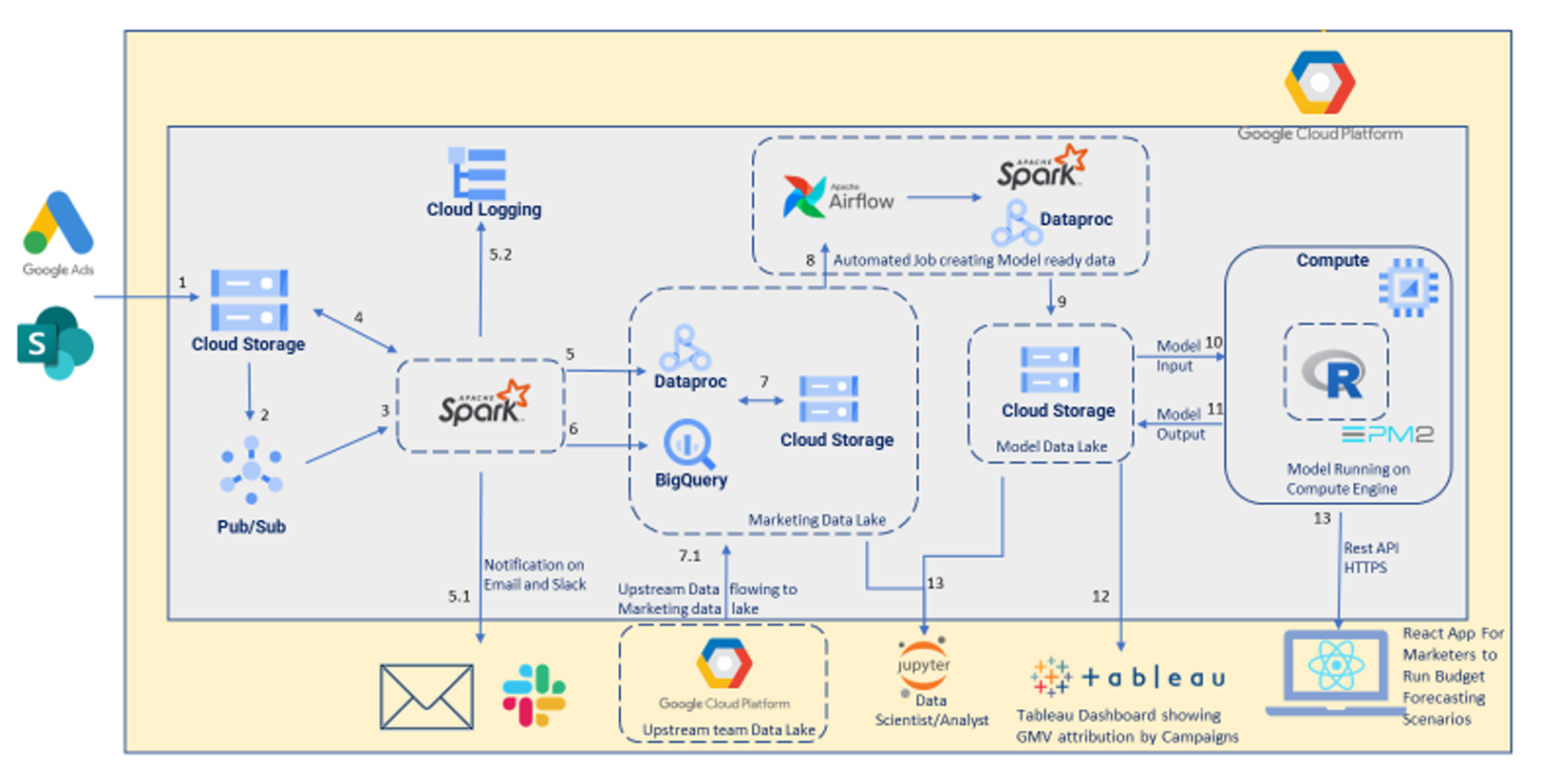

One of our largest retail clients wanted to build a comprehensive solution that could provide a detailed impact of their marketing spend on revenue to better understand which marketing campaigns were and weren’t effective and what variables drove ROI across different global regions.
Tredence’s world-class marketing analytics and data engineering teams joined forces to work with the client to design and implement a next-generation Marketing Analytics Platform on GCP.
The goal was simple: build an exceptional Marketing Analytics Platform that would provide valuable insights across the organization. The platform needed to be able to provide some of the following features to analysts and users:
The solution was ambitious and came with a variety of technical and business challenges that our team had to overcome:
Tredence worked closely with the client’s enterprise architecture team, our business stakeholders in the marketing analytics organization, and Google to design the optimal solution architecture to meet our client’s needs.
The Marketing Analytics Platform is based on a robust, scalable architecture that leverages many of the most advanced GCP services available. Our solution had a few key technical requirements that needed to be met, including:
The services we leveraged within the GCP as part of this solution are listed below. As can be seen, we used various services to provide a marketing analytics solution that met the client's requirements.
|
Technology requirement |
GCP service |
Rationale for using the selected GCP service |
|
Virtual Machines |
Compute Engine |
Google Compute engine provides the ability to create virtual machines that are required to -
|
|
Object Storage |
Cloud Storage |
|
|
Event Processing |
Pub/Sub |
|
|
Data Processing Engine |
Dataproc |
|
|
Logging |
Cloud Logging |
|
|
Datawarehouse |
BigQuery |
|
The solution architecture diagram below showcases how we used the different GCP services to build the Marketing Analytics Platform.

The Marketing Analytics Platform has created tremendous value since it was implemented. The solution has modernized how the marketing team thinks about, consumes, and uses data and insights to power decision-making. Post implementation, the Marketing Analytics Platform has helped to generate $150M+ of additional revenue through optimized marketing analytics campaigns during the Black Friday events. Additionally, optimizations that were generated by analysts using this platform generated an additional 15% lift year over year in performance marketing campaign efficiency.

The UDP since its inception have been processing 250 Tb’s of data weekly

Overall reduction in turn-around time by 70 percent for computationally heavy jobs

30-35 per-cent overall cost savings